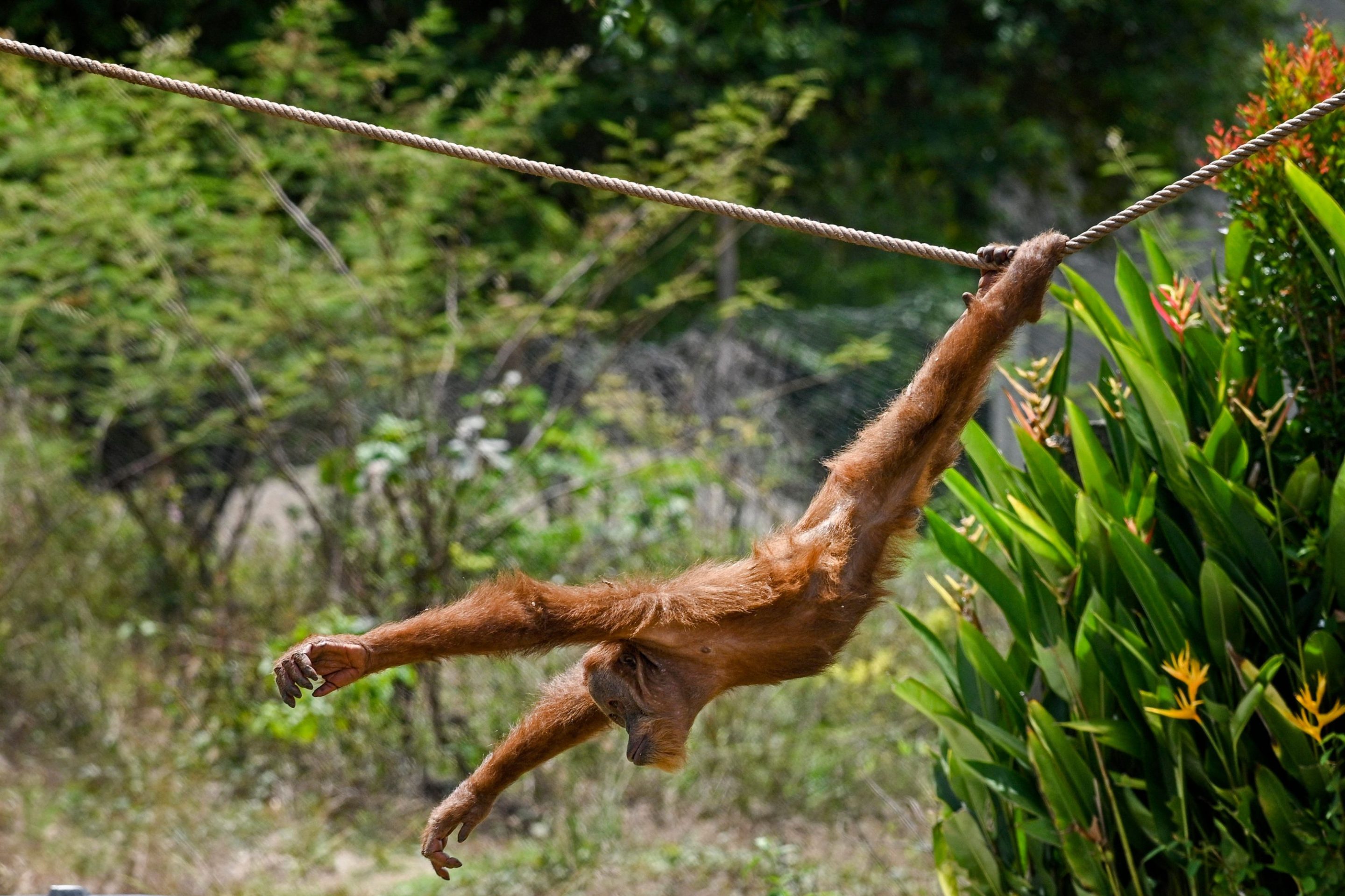This week, a charming paper published in the journal Primates documented how great apes deliberately spin themselves to become dizzy. The researchers watched 40 videos of orangutans, gorillas, chimpanzees, and bonobos whirling around on ropes and vines, both in captivity and in the wild. The videos are immediately recognizable to anyone who has participated in the age-old human tradition of the dizzy bat race and found themselves profoundly disoriented, stumbling, and even a little euphoric.
The researchers interpret this phenomenon as evidence that great apes seek out altered states of being, and suggest the discovery offers insight into a potential evolutionary origin of our own human desire to get high. According to a press release from the University of Birmingham, the researchers first came across the phenomenon in a viral video of a captive male gorilla spinning in a pool, mouth agape and arms thrashing in the water. Frankly, he looks like he's having an amazing time!
It's not news that wild animals experience altered states (no, I am not talking about Cocaine Bear). Plenty of cats enjoy catnip, and wild primates munch on fermented foods that might lead to a state of "drunkenness." But popular news stories are often eager to latch on to narratives of "animals getting high" that they misconstrue what's actually happening. For example, the BBC documentary Dolphins: Spy in the Pod popularized the notion that dolphins regularly passed around a toxic pufferfish to get high—a phenomenon that science writer Christie Wilcox neatly debunked.
But spinning, the authors explain, is an entirely deliberate action. One cannot accidentally spin five times around in a tub in the way one can accidentally eat a fermented fig. After analyzing the apes' spinning speeds and number of revolutions, the researchers found, on average, the apes spun 5.4 times per session. The longest spin session had 28 revolutions, and the fastest single spin had five full revolutions in a single second. The authors found the apes could spin as fast as expert human spinners, such as circus performers and Dervish Muslims who whirl as meditation.
When the researchers turned the experiment on themselves, they found it difficult to spin as long and as well as the apes, according to the press release. "We invite the reader to try the observed average rotational speed, length or number of bouts performed by great apes reported here for instant validation," the authors write in the paper.
While reading this paper, I realized two things could be true. I am glad that, for a great ape, an altered state is simply a vine away. Everyone deserves the right to bliss. And yet I am so deeply relieved I do not have to spin a rope or a vine to get high. I will never take my human privilege of having a gummy before watching spectacularly dumb reality television for granted. Imagine going to a house party full of strangers and distant acquaintances that's just a room full of vines! I sure might like to feel a little dizzy, but I would rather leave than climb up one and spin, spin, spin. Perhaps for this wild gorilla, who lives a peaceful life in the rainforests of Volcanoes National Park, Rwanda and has never had to triple-text their landlord to fix a leak in the ceiling, spinning is enough. But until I too live in a rainforest, it's gummy or bust!






